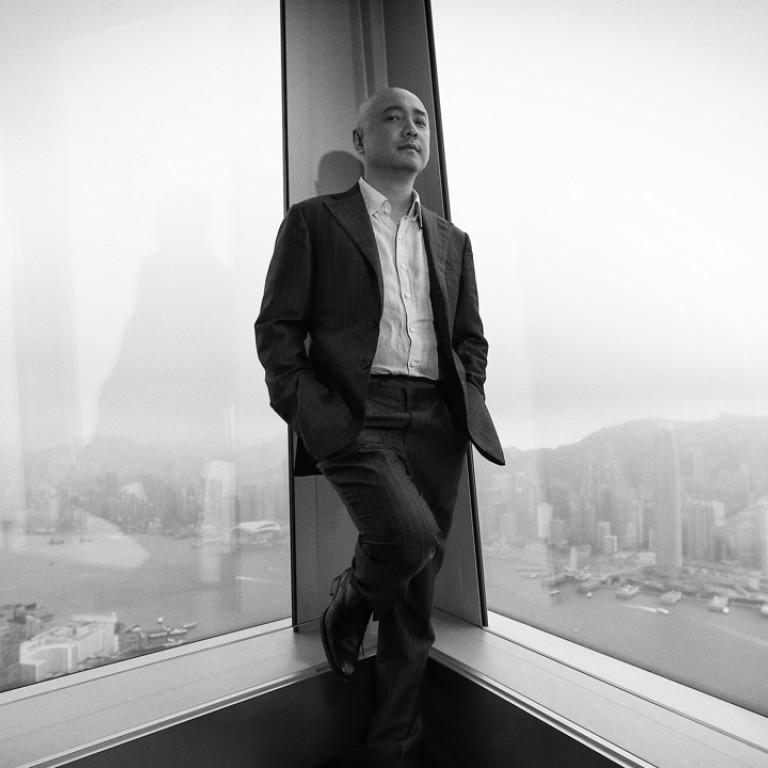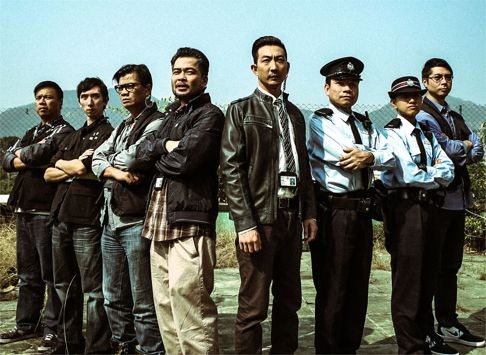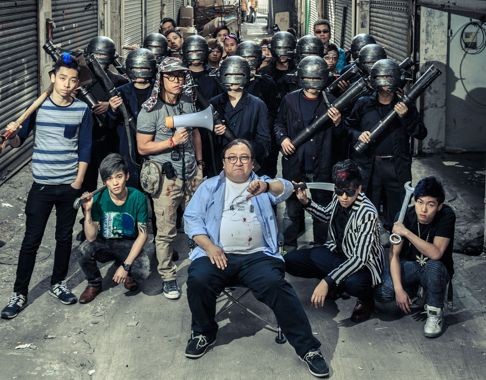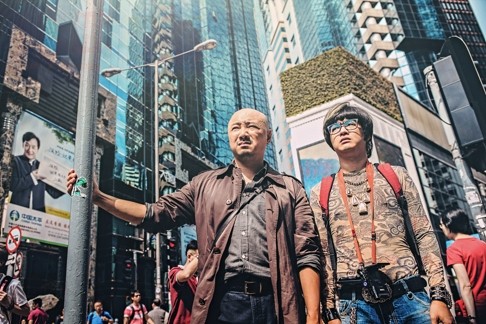
Will local audiences warm to Chinese filmmaker Xu Zheng’s Lost in Hong Kong?
Actor-director is curious about the reception a film with a Chinese view of city will get, after initial enthusiasm in China for the follow-up to Lost in Thailand tailed off
Actor-director-producer Xu Zheng should have every reason to feel on top of the world, not least because we are 393 metres above sea level on the Sky100 observation deck at ICC in West Kowloon, where part of his latest offering, Lost in Hong Kong, was filmed.
The former theatre actor is now China’s only filmmaker to have two titles grossing more than 1 billion yuan (HK$1.2 billion) each at the box office – even if this fact, somehow, appears lost on him.
“I don’t have any particular feeling about this,” Xu says stoically when asked about his bankable profile. “I’ve always thought that money should be [considered] a bonus only. The most important thing is that you’re doing what you like to do. I’m lucky that I’m doing what I like.”

The new film’s domestic takings have since dropped off, notably as a result of its mixed reception; currently at 1.6 billion yuan, Lost in Hong Kong’s earnings are set to fall short of the new Chinese record of 2.43 billion yuan, set by the 3D fantasy film Monster Hunt earlier this year.

Lost in Thailand is a wacky road movie that charts the slapstick-filled expedition of a businessman (played by Xu) from Bangkok to Chiang Mai with an annoying sidekick (Wang Baoqiang) in tow, and Lost in Hong Kong replicates that premise – Xu’s protagonist is followed around by his insufferable brother-in-law (Bao Beier) – but shifts its focus to such sober topics as broken dreams and frustrated married life.

With a budget of 100 million yuan (compared to the relatively modest 30 million yuan for Lost in Thailand), his new film is a passion project in more ways than one. Like many of his compatriots, Xu began consuming Hong Kong films and Canto-pop songs when he was a teenager.

While Lost in Hong Kong is characterised by the litany of Canto-pop tunes on its soundtrack and the range of classic film references peppering its fevered dash around Hong Kong, Xu says his most memorable experience during the shoot was his brush with the umbrella movement protest late last year.
“The Occupy Central [campaign] was happening when I was filming here,” he says with a chuckle. “I was worried that our shoot would run into trouble. But it turned out to be fine; we were quite lucky that things went smoothly.”

Ahead of Lost in Hong Kong’s release in the city, it remains to be seen if the prevalent anti-China sentiment has bled into the city’s pop-culture ecosystem. Among the various Hong Kong celebrities making cameo appearances in the film, prolific director Wong Jing is easily the most divisive figure due to his repeated, unfriendly remarks against his pro-democracy peers.

Regardless, Xu is looking forward to finding out if film-goers will be lured into cinemas by his take on their city. “Nowadays, it’s Hong Kong filmmakers who go and work on the mainland – seldom the other way round. I’m not sure if they’d be interested to check out Hong Kong as seen through a Chinese filmmaker’s lens.”
Although Xu’s name has risen towards the top of the international box office charts with Lost in Thailand and Lost in Hong Kong, he remains an enigma not just to Hong Kong audiences but most foreign observers as well. The actor-director is, however, determined to play down what could only be described as his stardom on home turf.
“I think the foreign analysts should understand that some of us are only enjoying wonderful box office results because of [China’s] market expansion,” says Xu. “All I ever wanted is to be a little chess piece. I’d like to keep making the movies that I like, but I wouldn’t promise to become a master or something. It’s enough for me as long as I’m doing my job properly.”
Lost in Hong Kong opens on November 19

